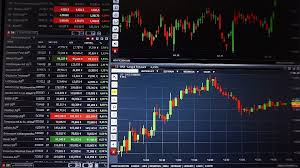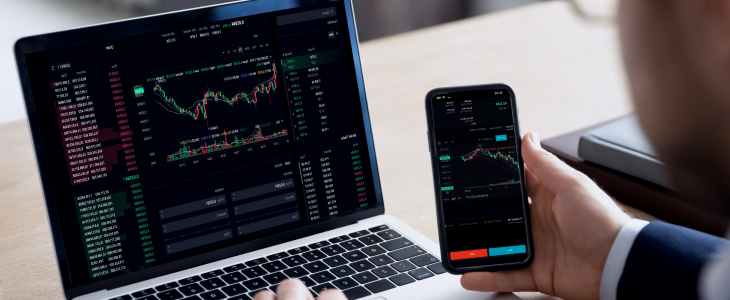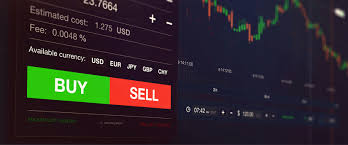Is Forex Trading Halal or Haram Understanding the Ethical Implications

Is Forex Trading Halal or Haram?
The world of finance is dynamic, and with the rapid rise of Forex trading, many are left wondering about its ethical implications. Is Forex trading halal or haram? This fundamental question resonates with many Muslims interested in the financial markets, sparking discussions about the permissibility of engaging in currency trading. In this article, we will delve into the Islamic perspective on Forex trading, examining the relevant aspects of Sharia law and ethical considerations involved in trading practices. Additionally, we will discuss the implications for Muslim traders while exploring resources like forex trading halal or haram https://trading-terminal.com/ that can support informed trading decisions.
Understanding Islamic Finance
Islamic finance is governed by the principles outlined in Sharia law, which emphasizes fairness, transparency, and ethical conduct in financial transactions. The primary tenets that govern Islamic finance include the prohibition of riba (usury or interest), gharar (excessive uncertainty), and haram activities. To determine whether Forex trading aligns with these principles, we must analyze its core elements and trading practices.
The Nature of Forex Trading
Forex, or foreign exchange trading, involves buying and selling currency pairs with the goal of making a profit from the fluctuations in exchange rates. It is a decentralized market that operates 24 hours a day, enabling traders to engage in trading at any time. The market is highly liquid, allowing for quick transactions and the opportunity to leverage investments significantly.
Halal Aspects of Forex Trading
Many argue that Forex trading can be considered halal when conducted in compliance with Islamic principles. Here are some aspects supporting the permissibility of Forex trading:

1. Absence of Riba
Riba, or interest, is strictly prohibited in Islam, but Forex trading does not inherently involve interest rates. By trading currencies without engaging in interest-based financial products, traders can avoid riba. This regulation allows transactions to align more favorably with Islamic principles, making them halal.
2. Speculation as Knowledge-Based Trading
Trading in the Forex market is essentially a form of speculation; however, if traders engage in informed decision-making based on knowledge and analysis rather than sheer gambling, it can be deemed acceptable. Understanding market trends and utilizing technical and fundamental analysis can create a disciplined trading approach that aligns with Islamic values.
3. Risks and Rewards
Forex trading inherently involves risk, and Islam encourages the acceptance of risk as long as it is based on ethical transactions. Just as a businessman must accept losses in trade, Forex traders also understand the risks involved. Profit earned from legitimate trading activities can be seen as halal as long as it does not involve unethical practices.
Haram Aspects of Forex Trading
Despite the potential for halal practices, there are concerns regarding elements of Forex trading that may render it haram. Here are some key considerations:
1. Leverage and Margin Trading

Many Forex brokers offer leverage, allowing traders to control larger positions with minimal capital. While this can amplify profits, it also increases risk exposure. Some scholars argue that when leveraged trading leads to excessive uncertainty or potential loss, it may contradict Sharia principles, rendering it haram.
2. Speculation vs. Gambling
While informed speculation may be acceptable, the thin line between speculation and gambling is significant in Islamic finance. If a trader approaches Forex with a gambling mentality—chasing after quick profits without research or strategy—it may fall under the category of haram, as gambling is viewed as detrimental to society and individuals.
3. Involvement in Haram Activities
Some Forex trading strategies inadvertently align traders with haram activities. For example, trading based on news regarding businesses that operate in non-compliant sectors such as those dealing in alcohol, gambling, or pork may lead to participating in haram transactions. Islamic scholars emphasize the need to filter trading activities to avoid such conflicts.
Seeking Guidance from Scholars
Given the complexity of Forex trading, Muslims interested in participation should seek guidance from knowledgeable Islamic scholars or financial advisors with an understanding of Sharia principles. This approach helps to clarify doubts and ensures that trading practices align with Islamic values.
Conclusion
In conclusion, the question of whether Forex trading is halal or haram is nuanced and depends on various factors, including the approach taken by the trader. Engaging in Forex trading can potentially be halal if one adheres to Islamic principles, avoiding riba, excessive risk, and unethical practices. As always, informed decision-making, continuous learning, and seeking guidance from credible sources can better position Muslim traders towards making Sharia-compliant decisions. For those navigating the evolving landscape of Forex trading, tools and platforms like https://trading-terminal.com/ can provide valuable insights and resources. The ongoing discourse on Forex trading continues, making it essential for traders to stay informed and conscientious about their trading choices.
